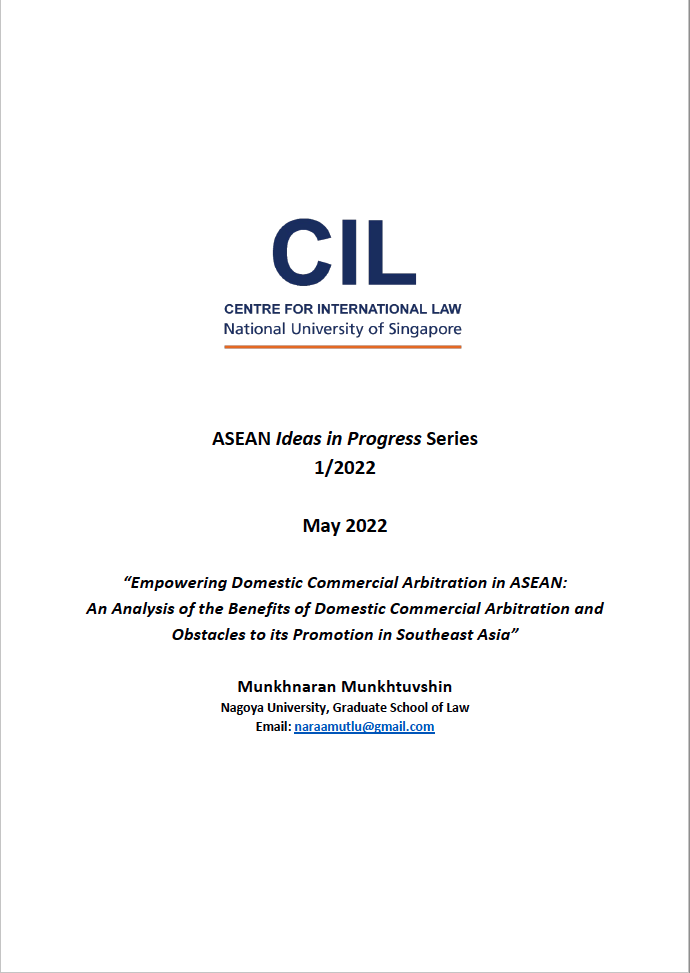
Empowering Domestic Commercial Arbitration in ASEAN: An Analysis of the Benefits of Domestic Commercial Arbitration and Obstacles to its Promotion in Southeast Asia
Munkhnaran Munkhtuvshin
Nagoya University, Graduate School of Law
Abstract:
ASEAN member states, like many other nations, strive to promote international commercial arbitration to increase their standing and prestige, while simultaneously attracting investments. One area of focus is promoting international arbitration. Domestic commercial arbitration also has several advantages, such as easing the case overload in state courts and providing parties with more opportunities to choose a dispute resolution procedure, in line with their cultural preferences. However, with the ambitious aim of promoting international commercial arbitration, developing Southeast Asian nations may unknowingly harm their domestic arbitration practices.
This study sheds light on the overlooked significance of domestic commercial arbitration in Southeast Asia, and points out how verbatim adoptions of the United Nations Commission on International Trade Law (UNCITRAL) Model Law on International Commercial Arbitration, which ASEAN member states have adopted to promote international commercial arbitration in the region, adversely affects further developments to domestic arbitration, and creates a monopoly of a few English-speaking lawyers and arbitrators in the domestic commercial arbitration market.
This paper suggests for ASEAN member states to adopt separate domestic arbitration legislation to apply to solely domestic commercial arbitration. Careful drafting would accommodate their citizens’ specific needs and certain domestic dispute resolution traditions along with established business practices. The paper also calls for Southeast Asian scholars and arbitration practitioners to do more research on domestic commercial arbitration legislation and related practical issues.

